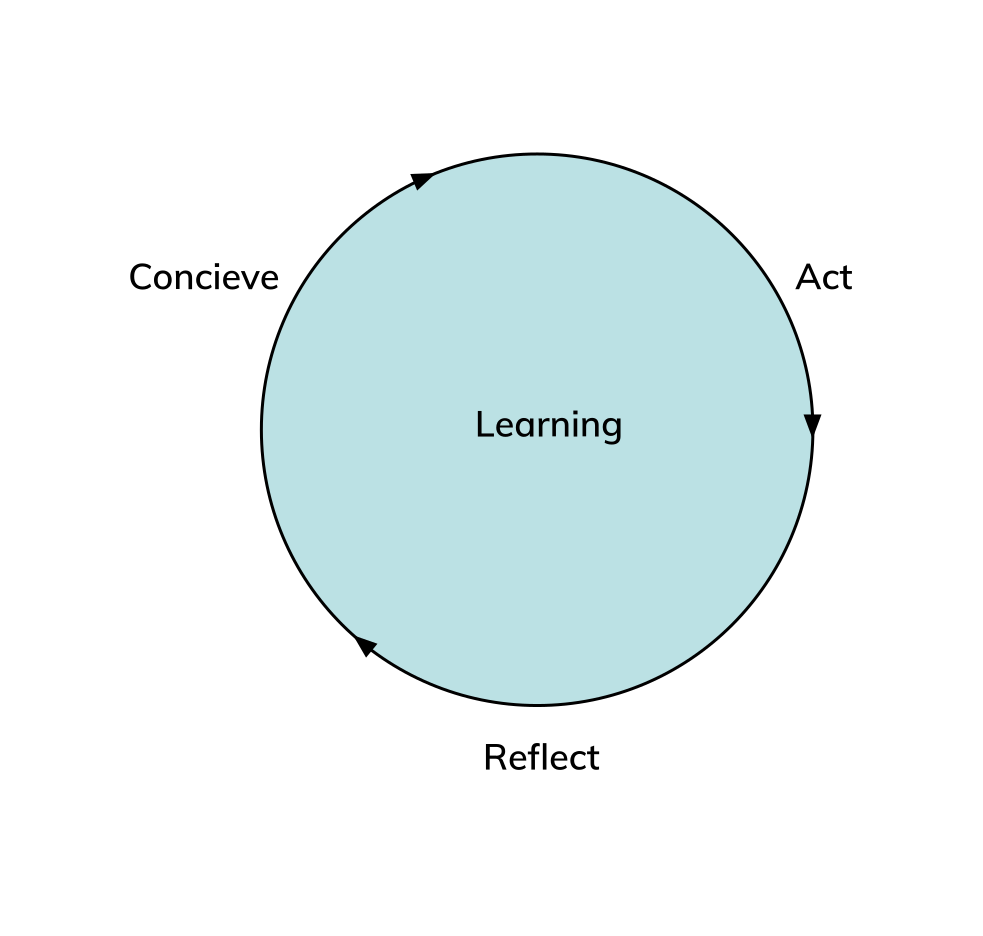What is Organizational Learning
Learning is the way we create new knowledge and improve ourselves. Although there is ample debate regarding the mechanisms and scope of learning, in its simplest form this is no different for organizations. Botha et al. describe the organizational learning process as follows:

As one can see organizational learning is based on applying knowledge for a purpose and learning from the process and from the outcome. Brown and Duguid (1991) describe organisational learning as "the bridge between working and innovating." This once again links learning to action, but it also implies useful improvement.
The implications to knowledge management are three-fold:
- One must understand how to create the ideal organizational learning environment
- One must be aware of how and why something has been learned.
- One must try to ensure that the learning that takes place is useful to the organization
Organizational Learning Pitfalls
Senge (1990) argues that often it is failure that provides the richest learning experience, which is something that organizations need to understand and use more effectively. He criticizes the way we reward success and look down upon failure as something that can be detrimental to the long term health of the organization. Levitt and March (1996) further argue that success is ambiguous and depends on how it is interpreted. This interpretation may not only vary significantly between different groups within the organization, but may change over time as success indicators and levels of aspiration change.
Levitt and March (1996) also discuss superstitious learning. This occurs when positive or negative results are associated with the wrong actions. Success and failure can both generate superstitious learning. If a firm does well, the routines that they followed are linked to this success and are subsequently reinforced. The opposite is true for failure. In such cases, the organization thinks that it has learned when in fact it has not. Real organizational learning would have resulted from the examination of the information generated from their actions rather than from relatively arbitrary success or failure criteria.
Different Approaches to Organizational Learning
Generally speaking, there are two approaches to organisational learning. The first view looks at the firm as a whole and s learning from a cognitive perspective. In a way, the firm is treated like a large brain composed of the individual members of the organization. The second view looks at learning as community based, where the firm's practitioners create knowledge in their own networks called communities of practice (Lave & Wenger 1991).
These views should be seen as complementary rather than contradictory. The next two sub-sections will organizational learning theory from these two perspectives.
 Emil Hajric
Emil Hajric